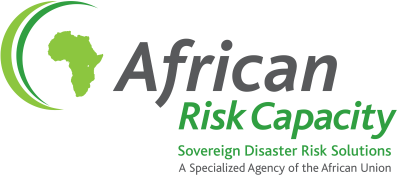
African Risk Capacity to Provide Innovative Financing to Protect against and Control Diseases
African experts and government officials came together for the launch of African Risk Capacity’s (ARC) Outbreak & Epidemic (O&E) insurance pilot programme on September 13-15 in Accra, Ghana. This product represents an effort to significantly improve the continent’s ability to protect against and respond to disease outbreaks and epidemics.
Representatives from across Africa met to establish the fundamentals for ARC’s O&E parametric insurance product, which will be able to deliver rapid and targeted funds for detected outbreaks, an intervention that studies have shown can result in a more contained outbreak.
Having successfully built an insurance and support model to protect millions of lives and livelihoods against the impact of drought and extreme weather, ARC was called upon by African Finance Ministers to develop a similar program to cope with disease challenges. Africa continues to be at extremely high risk of disease outbreaks that quickly can reach epidemic level. Many nations have experienced the severe human and economic impact of such outbreaks in recent years, and creating as part of the programme faster access to funding, while building an environment of improved preparedness and response capabilities, is an important priority.
Together with Africa Centres for Disease Control and Prevention (Africa CDC), ARC hosted a technical workshop in Accra to mark the launch of the O&E programme in order to bring together partners and collaborators.
A significant outcome of the three-day technical workshop was the determination regarding which specific disease pathogens or pathogen families should be covered by the pilot programmes. As part of the discussions, a decision was made to focus efforts on diseases that have the most severe impacts and with which local or national authorities are least familiar due to the infrequency of the occurrence of outbreaks. Such diseases include Ebola, meningitis, yellow fever, dengue fever, SARS, MERS, Marburg virus, and smallpox.
The workshop was opened by the Ghanaian Deputy Minister of Health, Kingsley Aboagye Gyedu. Keynote addresses were delivered by the World Health Organization (WHO) Representative for Ghana, as well as the Director General of the Ghana Health Services.
Robert Kwame Agyarko, ARC’s lead advisor for O&E, said “This launch marks an important step in a programme that has the potential to provide our continent with meaningful support and progress in controlling and minimizing the damage done by disease outbreaks. We cannot afford to wait until after disaster strikes – Africa must prepare, and we must invest in saving lives.”
“Africa is under the threat of infectious diseases like Ebola and Marburg that can take hold and spread viciously, endangering lives and seriously harming security, the economy and public order,” he continued. “Had Ebola been identified and the response begun two months earlier, the total number of deaths could have been reduced by 80%. We can never allow that to happen again. Together with all our partners, we will be able to establish the effective and sustainable solutions Africa needs.”
ARC is currently beginning its pilot phase for O&E, with Guinea and Uganda to be the first two countries in which the programme is offered. These two locations were selected based on regional balance and their previous experience with epidemic-prone diseases of international concern.
###
About African Risk Capacity (ARC) ARC was established in 2012 as a Specialised Agency of the African Union to help Member States better plan, prepare and respond to weather-related disasters. ARC works with countries to reduce the risk of loss and damage caused by extreme weather events affecting Africa’s populations by providing sovereign disaster risk insurance and other support, including capacity building, contingency planning, and access to early-warning technology. ARC plays an important role in responding to countries’ needs at times of crisis by providing fast access to funding for pre-agreed-upon, rapid response plans developed in conjunction with governments. ARC’s financing complements other forms of local and international support. In just the few years since ARC began, it has proved to be an effective and vital model – paying out USD $34 million to four countries (Senegal, Niger, Mauritania, and Malawi) affected by drought events. These resources provided assistance for over two million people and approximately one million cattle. ARC is now using its expertise to help tackle another of the continent’s great threats by creating and offering O&E insurance. For further information about ARC or O&E insurance, visit www.africanriskcapacity.org CORRECTION (21 September): The press release previously listed ARC's technical partnerships. These partnerships are not yet finalized.




